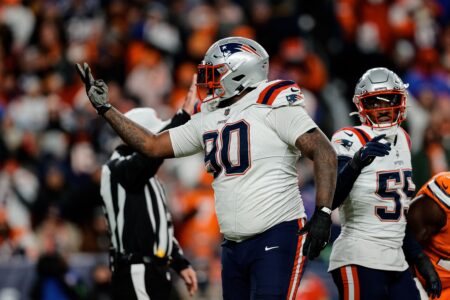- Joined
- Apr 3, 2006
- Messages
- 26,109
- Reaction score
- 52,116
Last night the Colts illustrated the exact scenario I posed last season about a strategic decision in football. I posed this exact same situation and it led to a good discussion, so I thought I would post it again since it happened in a Patriots game.
The Colts trailed by 15 points early in the fourth quarter and scored a touchdown, making the score 28-19. Conventional football wisdom is that, in this scenario, a team should kick the extra point, delaying the two-point conversion until later on in the game. The Colts took this approach and made the score 28-20 with 13:32 left in the game.
I argue that this was, in fact, not the right decision due to the value of known versus the unknown. That is, it's likely the Colts will eventually need to attempt a two-point conversion, but we do not know whether or not the attempt will be successful.
Supposing that last night's game turned out differently, let's say the Colts kicked the extra point to move to 28-20 and got the ball back late in the game and scored a touchdown to cut the lead to 28-26 then missed the extra point. The question is, wouldn't it have been better to know- with more time remaining- the number of possessions that will be needed- and therefore the correct play calling and time management strategies?
Instead of kicking the extra point, what if the Colts had instead gone for 2. If they make it, the score is 28-21. If they miss it, the score is 28-19, a two-possession game. But at least in the latter scenario, they still have a full quarter to strategize how to come back.
Thoughts?
The Colts trailed by 15 points early in the fourth quarter and scored a touchdown, making the score 28-19. Conventional football wisdom is that, in this scenario, a team should kick the extra point, delaying the two-point conversion until later on in the game. The Colts took this approach and made the score 28-20 with 13:32 left in the game.
I argue that this was, in fact, not the right decision due to the value of known versus the unknown. That is, it's likely the Colts will eventually need to attempt a two-point conversion, but we do not know whether or not the attempt will be successful.
Supposing that last night's game turned out differently, let's say the Colts kicked the extra point to move to 28-20 and got the ball back late in the game and scored a touchdown to cut the lead to 28-26 then missed the extra point. The question is, wouldn't it have been better to know- with more time remaining- the number of possessions that will be needed- and therefore the correct play calling and time management strategies?
Instead of kicking the extra point, what if the Colts had instead gone for 2. If they make it, the score is 28-21. If they miss it, the score is 28-19, a two-possession game. But at least in the latter scenario, they still have a full quarter to strategize how to come back.
Thoughts?

















